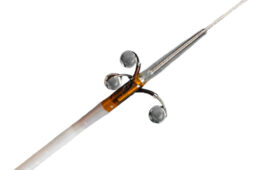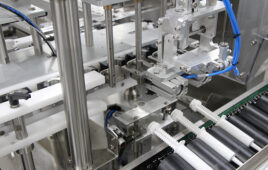 The FDA recently announced that it has approved the drug Radicava (edaravone) to help treat patients who have amyotrophic lateral sclerosis (ALS), also known as Lou Gehrig’s disease.
The FDA recently announced that it has approved the drug Radicava (edaravone) to help treat patients who have amyotrophic lateral sclerosis (ALS), also known as Lou Gehrig’s disease.
ALS is a progressive neurodegenerative disease that affects the nerve cells in the brain and spinal cord, according to the ALS Association. Motor neurons in the brain that help send signals from the brain to the spinal cord go through progressive degeneration. When they completely die, an ALS patient is no longer able to move because the brain can’t initiate or control muscle movement.
About 6,000 people a year are diagnosed with ALS in the U.S. The ALS Association suggests that there are as many as 20,000 Americans living with ALS. There are a host of electronic communication aids and assistive devices for caregivers out there to help ALS patients maintain their indepenence.
ALS treatment doesn’t reverse the damage that has already been caused, but it can slow the progression of neurodegeneration. Previous to the approval of Radicava, riluzole (Rilutek) was the only medication approved by the FDA more than 20 years ago to help slow the progression of ALS.
Other treatments include therapies like breathing care, physical therapy, occupational therapy and speech therapy, according to the Mayo Clinic.
Radicava was approved for use in Japan and South Korea in 2015, according to ALS Worldwide.
“After learning about the use of edaravone to treat ALS in Japan, we rapidly engaged with the drug developer about filing a marketing application in the United States,” said Eric Bastings, deputy director of the Division of Neurology Products in the FDA’s Center for Drug Evaluation and Research, in a press release. “This is the first new treatment approved by the FDA for ALS in many years, and we are please that people with ALS will now have an additional option.”
Radicava is delivered by a healthcare professional through an intravenous infusion. An ALS patient receives a daily dosing for 14 days, and then they go through a 14-day drug-free period. The following treatment cycle is receiving a treatment for 10 of 14 days and then another 14-day drug-free period.
Edaravone went through a 6-month clinical trial in Japan to test the efficiency of treating ALS. The trial included 137 participants who received either the edaravone or placebo randomly. After 24 weeks, patients who received edaravone showed that daily functioning declined less than those on the placebo.
Clinical trial participants also showed that some of the most common adverse reactions to receiving the treatment were bruising and gait disturbance. Other risks from the treatment include hives, swelling, shortness of breath and allergic reactions to sodium bisulfite, all of which require immediate medical care.
The FDA gave approval for Radicava to Mitsubishi Tanabe Pharma America through a drug orphan drug designation that is designed to provide incentives to help and encourage drug development for rare diseases.
Radicava is expected to be available by August 2017. It is expected to cost $1,000 per infusion, $11,000 per dosage cycle and $146,000 per year, which doesn’t account for Medicare, Medicaid and insurance coverage.
[Want to stay more on top of MDO content? Subscribe to our weekly e-newsletter.]




